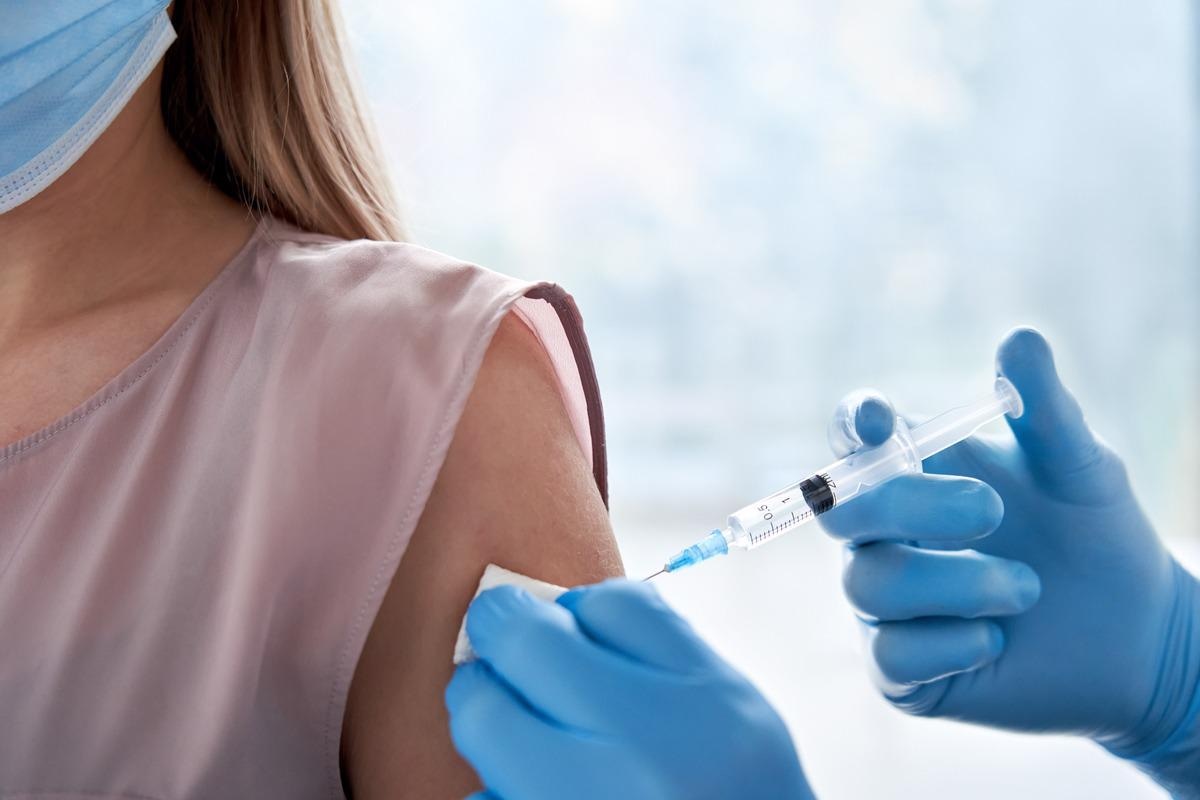In recent decades, there has been an increase in the number of novel viral infections. One such novel pathogen is severe acute respiratory syndrome coronavirus 2 (SARS-CoV-2), the causative virus of coronavirus disease 2019 (COVID-19), which is responsible for the most recent global pandemic.
The majority of deaths during influenza pandemics in the last century have been due to bacterial co/secondary infections.
 Study: Promising Expectations for Pneumococcal Vaccination during COVID-19. Image Credit: insta_photos/Shutterstock
Study: Promising Expectations for Pneumococcal Vaccination during COVID-19. Image Credit: insta_photos/Shutterstock
Unfortunately, numerous papers claim that bacterial co-infection is common in COVID-19 patients (the prevalence of COVID-19 linked co/secondary infection is up to 45.0%). Streptococcus pneumoniae is the most common coinfecting pathogen in the COVID-19 pandemic. Co-infection was found in half of the COVID-19 death cases, and pneumonia-related COVID-19 mortality in patients over 65 years old was 23%. COVID-19-induced immunological dysfunction is still a high-risk factor for pneumococcal illness. Pneumococcal illness and COVID-19 both have risk factors in common. COVID-19 and pneumococcal infections, for example, increase the chance of severe illness at any age; COVID-19 is now regarded as a key risk factor for pneumococcal pneumonia and invasive pneumococcal disease.
As a result, pneumococcal vaccination has become more important than ever during the COVID-19 pandemic. Positive studies of pneumococcal vaccination in patients with COVID-19 and other medical conditions, as well as the correlational effects of pneumococcal disease with COVID-19 to prevent morbidity and mortality from co/secondary infections and superinfections, are presented in this review conducted by a group of researchers from various Korean institutions. It also discusses the necessity and role of pneumococcal immunization in strengthening the global health system amid the current COVID-19 pandemic.
This study is available on the mdpi* server.
The study
Bacterial coinfection, also known as secondary bacterial infection, is a common consequence of respiratory viral disease that develops during or after an infectious disease caused by another pathogenic virus. These infections have the potential to impair clinical outcomes and disease severity, resulting in an increase in morbidity and mortality. In patients with severe acute respiratory syndrome (SARS) and Middle East respiratory syndrome (MERS) coinfection has been recorded, and bacterial coinfections have also been reported as common sequelae in COVID-19 patients.
According to reports, SARS-CoV-2 may accelerate bacterial colonization and adhesion to host tissue, and concomitant infections may cause irreversible tissue damage and increased pathogenesis. Furthermore, multiple investigations have found that COVID-19-associated co/secondary infection is as common as 45.0%, with secondary bacterial infections accounting for half of all deaths. Furthermore, COVID-19 patients who had a bacterial coinfection were 5.82 times more likely to die than COVID-19 patients who did not.
When COVID-19 is accompanied by superinfections, another critical issue arises. According to one study, 24% of COVID-19 patients experienced superinfections, and were more acutely unwell, and had a greater death risk. It appears to be mostly related to the superinfection's resistance to previously utilized medications. Although the actual frequency of bacterial superinfections in COVID-19 patients is unknown at this time, superinfections are predicted to be a substantial difficulty in COVID-19 patient management. Recent research has consistently found a link between co/secondary bacterial infection or superinfection and a higher risk of mortality in COVID-19 patients.
Adult pneumococcal immunization rates are high in most high-income countries since inoculation is recommended and free for those over 65. In other nations, however, vaccination is only recommended for elderly persons. Even in low- and middle-income countries, this rate is uncommon. As a result, clinics and patients can follow a number of guidelines to lower the incidence of COVID-19. Patients should be immunized first and foremost to limit the likelihood of preventable coinfections with other viruses. They should be given immunizations against S. pneumoniae in particular. Although the data does not entirely support this concept, pneumococcal immunizations could lessen the risk and severity of infections, especially COVID-19, in older persons.
In the wake of the COVID-19 epidemic, the Pan American Health Organization is guiding the implementation of immunization programs, recognizing that healthcare systems are experiencing a tremendous increase in demand. When healthcare systems are overburdened, mortality and morbidity from preventable and treatable diseases, such as vaccine-preventable diseases (VPDs), skyrocket.
Any interruption in health care, even if it is just temporary, will increase the number of people who are susceptible to diseases, raising the risk of VPD outbreaks. Such breakouts could cause health emergencies and place further strain on healthcare institutions, which are already overburdened because of COVID-19 response operations. Routine immunization programs should be maintained as long as COVID-19 response measures allow because immunization is an important part of health care. Furthermore, during the COVID-19 pandemic, one of the driving concepts for immunization campaigns must be to prioritize pneumococcal and seasonal influenza vaccines for susceptible population groups.
Implications
COVID-19 is currently regarded as a key risk factor for pneumococcal pneumonia and invasive pneumococcal disease in patients of any age with S. pneumoniae due to underlying medical problems. Given these findings, pneumococcal vaccination is more important than ever during the COVID-19 pandemic. In this review, the authors have presented positive reports of pneumococcal immunization in COVID-19 individuals with underlying medical problems.
Despite the fact that the WHO has stated that bacterial vaccination does not protect against COVID-19 pneumonia, the authors have demonstrated that there is a correlation between pneumococcal disease and COVID-19 in terms of preventing increased morbidity and mortality from secondary infections and superinfections. The authors discussed why pneumococcal vaccination is important in the current pandemic context to improve the global health system in the fight against COVID-19. This study backs up the recommendation for pneumococcal disease immunization and the COVID-19 pandemic relief that comes with it.